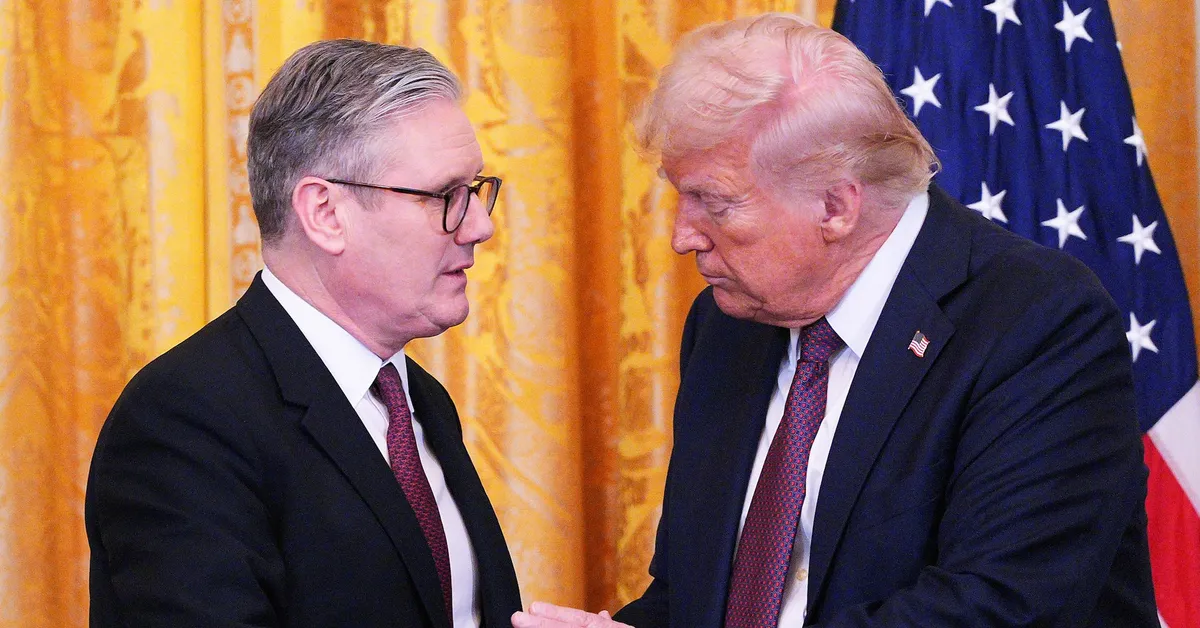
LONDON, May 8 (Reuters) - In a significant development in international trade, the United States and Britain are poised to unveil a deal aimed at lowering tariffs on select goods. This announcement, scheduled for Thursday, marks the first formal agreement since former U.S. President Donald Trump imposed extensive tariffs on various countries worldwide.
In a post on Truth Social, Trump indicated that he would hold a news conference at the Oval Office at 10 a.m. EDT (1400 GMT) on Thursday to discuss this major trade deal with representatives from a "big and highly respected country." This statement has generated considerable anticipation regarding the details of the agreement.
A spokesperson for the British government confirmed that Prime Minister Keir Starmer would provide an update on the ongoing U.S.-UK trade discussions later today. Two British sources familiar with the negotiations stated that the outline of the agreement is expected to be announced shortly.
A Downing Street spokesperson emphasized the importance of the U.S. as a vital ally for both economic and national security. Continuous dialogue has been taking place between the two nations, and the Prime Minister is set to share more information on the progress later today.
According to a British official, discussions have focused on establishing lower tariff quotas on specific exports, particularly in the steel and automobile sectors. These sectors have been adversely affected by the 25% tariffs imposed by the U.S. In exchange, it is anticipated that Britain will reduce its tariffs on U.S. automobiles and eliminate a digital sales tax that impacts American technology companies.
However, the U.K. has maintained its stance on not compromising its food standards to provide U.S. producers with greater market access. The status of a 10% baseline tariff, introduced by Trump and affecting most countries—including the U.K.—remains uncertain.
Despite the potentially limited scope of the agreement, it carries considerable political weight for both nations. Investors are closely monitoring whether Trump can successfully de-escalate the ongoing trade war, which has raised concerns about inflation and slowed economic growth. For the U.K., the government is eager to mitigate the adverse effects of Trump's tariffs while striving to recalibrate its trade relations with the European Union.
Earlier this week, the U.K. also finalized a new trade deal with India, further emphasizing its active role in global trade negotiations. Trump's trade policies have significantly impacted financial markets, creating fears of a recession and prompting central bankers and business leaders to navigate the complexities of chaotic policymaking that disrupts global supply chains across numerous industries.
In a recent update, the International Monetary Fund (IMF) downgraded its growth forecasts for the U.S., China, and many other nations, highlighting the detrimental effects of U.S. tariffs while cautioning that escalating trade tensions could stifle economic growth further.
Additionally, U.S. and Chinese officials are scheduled to meet in Switzerland on Saturday, representing a potential first step toward resolving the ongoing trade conflict between the world's two largest economies. Following the broad 10% tariff imposed by Trump on April 2, U.S. officials have engaged in a series of meetings with trade partners. The higher reciprocal tariff rates for many nations were temporarily suspended for 90 days, but Britain was exempt from these additional tariffs due to its trade balance favoring imports from the U.S.
As developments unfold, the outcome of the forthcoming announcements will undoubtedly have lasting implications for U.S.-UK trade relations and the broader global economic landscape.